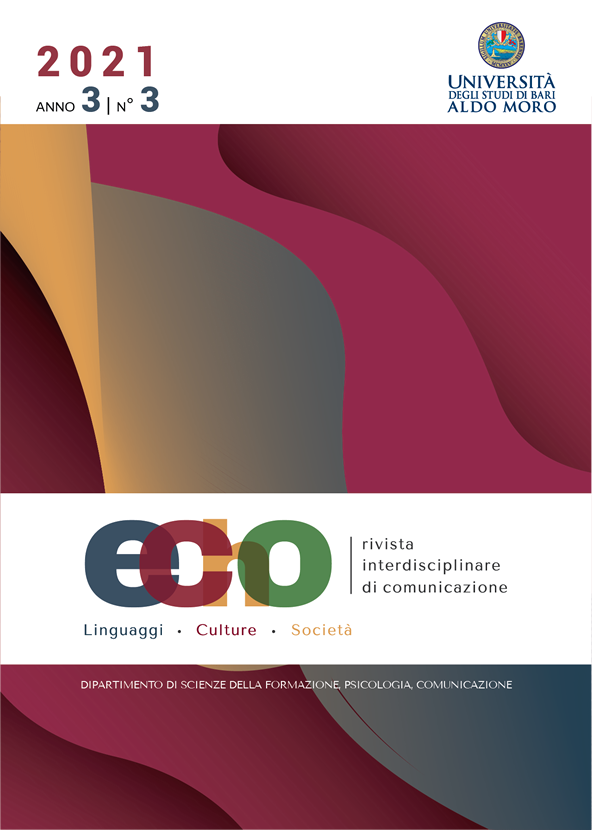Screens and evanescence in american literature 2.0: images, virtual platforms and digital reproductions, in Tao Lin’s Taipei
DOI:
https://doi.org/10.15162/2704-8659/1303Parole chiave:
screen, American literature, digital subjectivity, new media, cyberspaceAbstract
-Abstract (in the language used in the essay): What the screen does in its manipulation of personal data, transposing or rather transfixing personality into a parallel dimension, is to produce an experience of absence in which the modern image abandons the real to dissolve in a generic “non-place.” The central argument of this analysis is to examine the reshaping of the modern image and the erosion of the Self. The aim is to examine the image of the absentee, the user, who — being absorbed by virtual reality — disappears and dissolves in a digital dimension. Indeed, the self-evident challenges the Internet has posed to our image have led the modern Self to shift from private to public, from realism to artifact. As such, cyberfictional novels offer the reader a three-dimensional perspective. The real context, the immersive experience within the plot, and a third dimension, the digital one, in which the protagonist often dissolves, which is the case of Tao Lin’s novel, Taipei (2013). In Taipei, a Twitter/Social network novel, an American-Chinese writer named Paul, wanders through New York in a desperate desire to connect. His life experience becomes incredibly immersive as he tweets, chats, sends emails, constantly checking his Facebook profile. As I aim to show, the protagonist represents the traditional figure of the absentee who abandons his place, in reality, to travel or rather fade somewhere else. In this way, the final concern of this study is to look at the manipulation of digital subjectivity through the power of the screen and virtual platforms, demonstrating how contemporary American literature is increasingly projected toward the representation of a parallel universe in which the protagonist manages to vanish, to enter a virtual reality torn between true and false, real and artificial. Through the lens of contemporary American fiction, the essay will consider the experience of absence offering an exploration of the modern image manipulated by screens and cyberculture.








